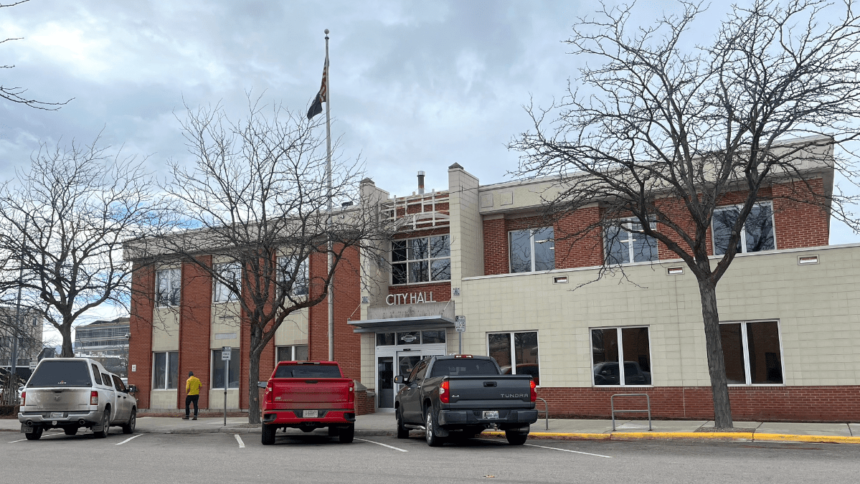MISSOULA — The Missoula City Council on Monday passed a 2025 budget increasing taxes by nearly 17%, more than half of which was approved by fire levy voters in June. Four of the 12 council members voted against the budget for different reasons, including concern over rising taxes, frustration with their ability to amend the budget and a lack of information about how city programs have performed.
The increase will add $71.31 per $100,000 of assessed value to property tax bills; owners of a $450,000 home — the median value in Missoula — will pay an additional $320.88 annually.
Mayor Andrea Davis’ first executive budget included a 5.84% increase, with bumps to the general fund, road and park districts, plus a temporary two-mill levy allowed by the June 2023 homelessness emergency declaration.
“We were really judicious in this mayor’s budget and this executive budget knowing that the voter-passed fire levy funded very important things for our community,” Davis said during the meeting. “We wanted to be very careful with what the mayor’s budget added on top of that.”
On Monday evening, the council unanimously approved the one-time levy that would raise about $414,000 to help pay for the Johnson Street emergency shelter. Missoula County will pay for half of the $1.8 million shelter cost, and the city will cover the rest of its share with remaining American Rescue Plan Act money, Davis said.
The city previously paid for the shelter using the federal pandemic relief money, which runs out next year. If the levy didn’t pass, Davis had planned to increase the general fund budget by two mills to pay for the shelter costs, instituting a permanent tax increase.
Council members Sandra Vasecka and Bob Campbell — who backed a failed proposal to defund the Johnson Street shelter during a Monday afternoon workshop — spoke against the levy although they voted for it. The emergency levy required a unanimous vote to pass.
“I’m not very happy with this decision I’m going to be making tonight because I needed to choose between the lesser of two bad choices and two that I disagree with,” Vasecka said. “I’m always skeptical when government says temporary or one time, but I do not want this to be never-ending and coming up in future budgets.”
The emergency levy is one of the limited ways the city can bring in more money as inflation and budget priorities outpace property tax revenue, Davis said. State law limits how much the city can increase property taxes, creating a “persistent structural imbalance,” she said.
“I’m not very happy with this decision I’m going to be making tonight because I needed to choose between the lesser of two bad choices and two that I disagree with.”
Missoula Council Member Sandra Vasecka
Even with Missoula’s recent growth, taxable property from new construction and annexations do not add a lot to the tax base, said Dale Bickell, chief administrative officer, during a budget workshop Aug. 7.
To help address budget challenges, Davis asked departments to inventory programs and identify a total of $1 million in savings across the city, she said. The city saved $700,000 from changing workers’ compensation providers and another $500,000 from other cuts, Davis said.
“We were seeking savings in the budget knowing we had budget increases,” she said. “Much of those are related to … our ongoing commitments in terms of staff wages and other contracts. We know those costs are going to go up.”
The city is in negotiations with the police officers’ union, which will likely result in a wage increase of more than $1 million, said Leigh Griffing, the city’s finance director.
The city’s general fund will receive a $1.3 million tax remittance from the Missoula Redevelopment Agency to help pay for core services, Davis said. The agency, which receives tax increment financing from Missoula’s urban renewal districts, will send a total of $4.5 million in proportionate amounts back to the city and other taxing districts.
The city’s operating budget is about $163 million, with total expenditures — including …





